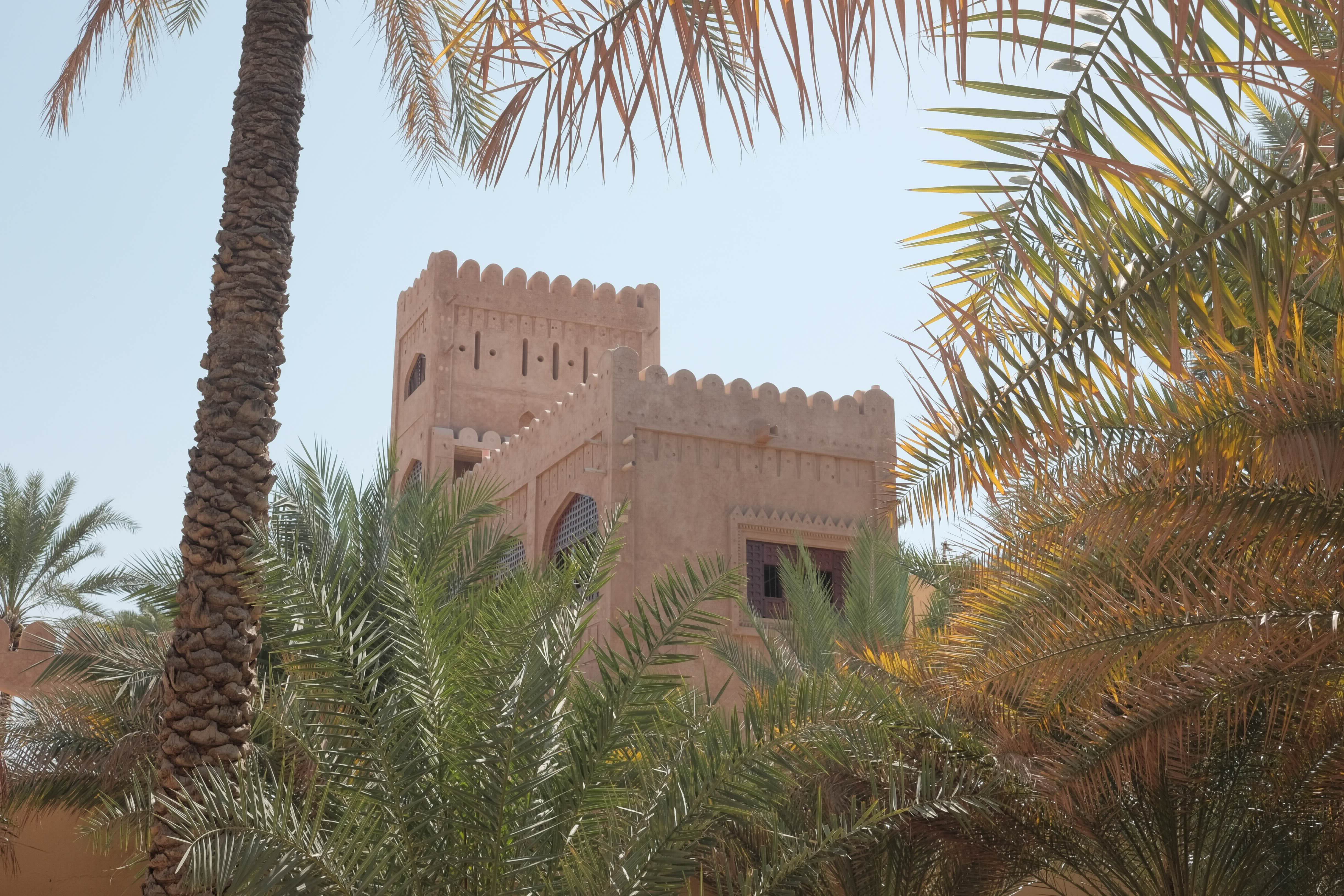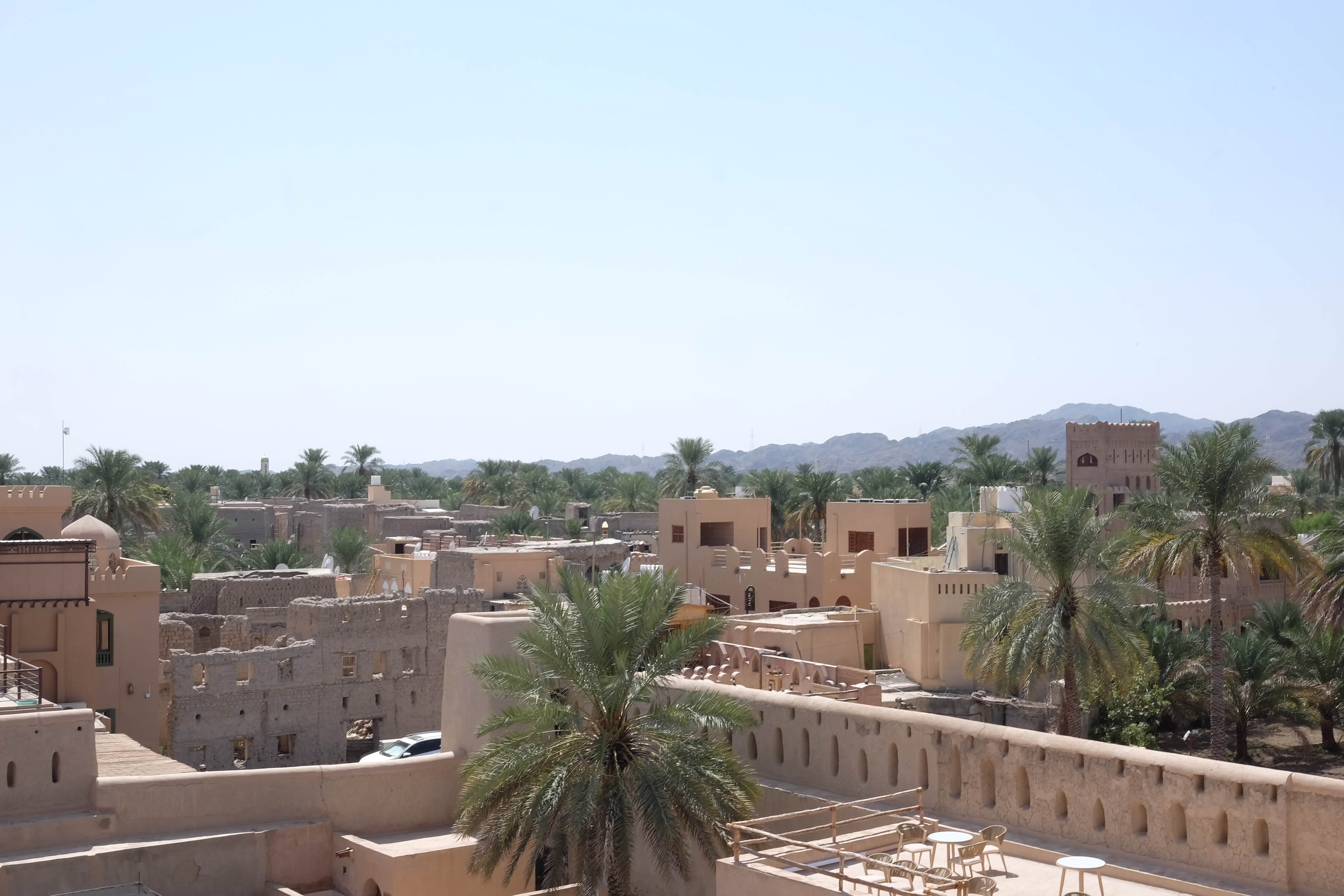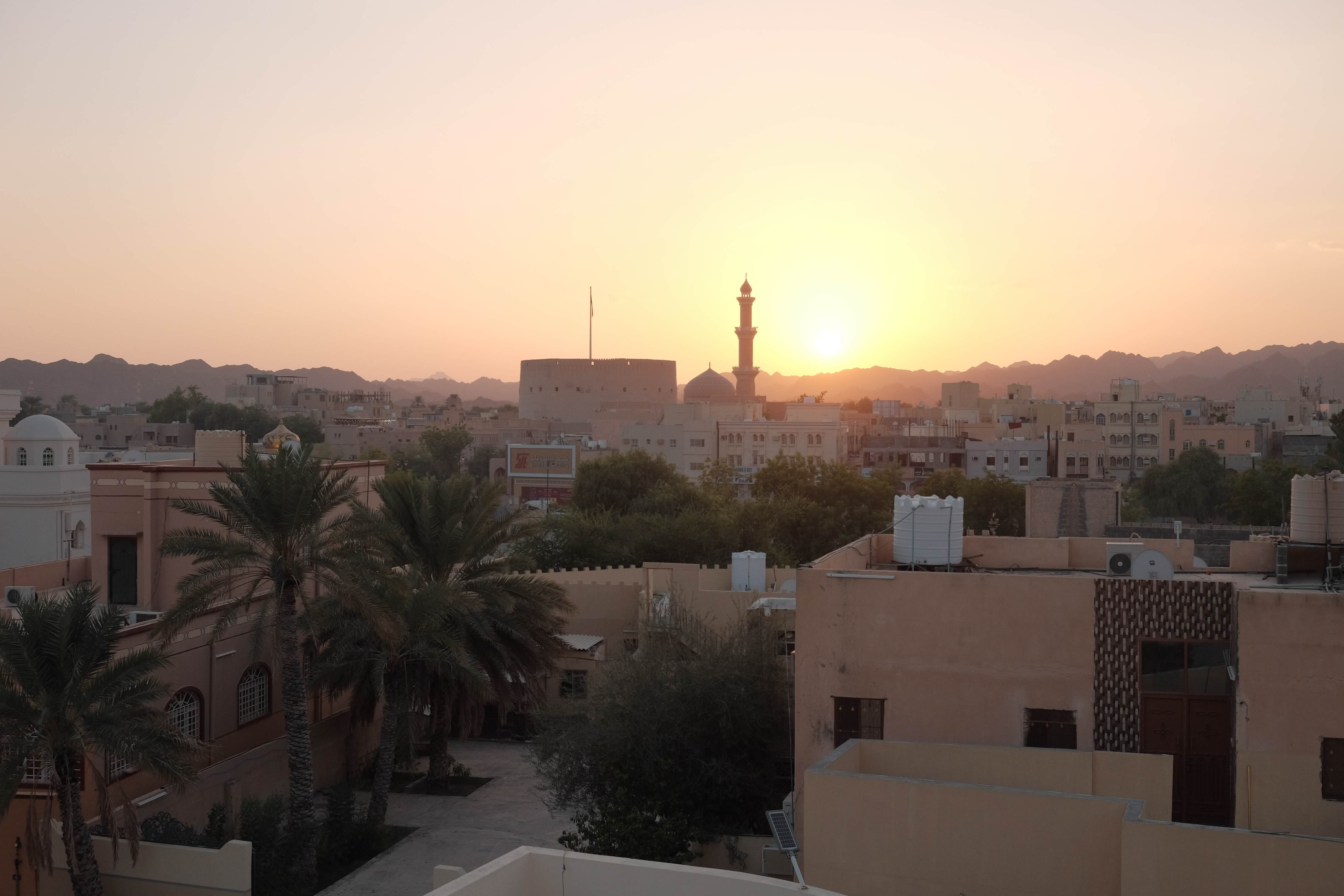A Day in Nizwa
posted on 1 November, 2023 by Dan Vonk in travel, personal

Despite Oman having a long history, there wasn’t much evident of it in the capital city Muscat, which is a city caught between being a hectic middle-eastern metropolis and a resort town for rich oil-sheiks, depending on where you are and your station in life. Therefore, in search of some history, I took a coach out to Nizwa, a major city and oasis town in the desert interior of the country.
Booking the coach on a mobile phone was a bit quirky but worked out alright. However, when I turned up at Muscat central bus station, there was nobody there, so my coach ride was serene for the first few miles. It was only when we stopped at the bus stops on the periphery of the city, did the coach start to fill up. The travellers were also almost exclusively migrant workers from Africa or the Indian subcontinent and this turned out to be the key functionality of this service, which I’ll explain later on.
The journey itself was no sweat at all (actually the coach was nicely air-conditioned) and we glided along an immaculate and brand-new asphalt highway, parts of which were still being built as we went over them. The scenery was barren, rocky desert, though the peaks of the Hajar mountains were never far and we sometimes found ourselves driving directly through them.
After a couple of hour’s drive, we arrived in the city. Nizwa itself sits in a shallow valley, flanked by a large table mountain on one side, and on the other, more desert and rocky hills. It is a place of green, lush palms, which cover the city like a blanket. Popping out of this canopy are the traditional mud-brick buildings and the famous battlements of Nizwa castle.

The city has a proud history as a strategic town and was fortified accordingly, as it lies on the cross-roads between the road to the capital and the road to the southern provinces of Oman. Today this castle is the most visited tourist site in Oman and I did enjoy walking around the maze of walkways inside it. Another notable feature of Nizwa, is its Aflaj canal system, which was built in the ancient Persian manner and examples of which can even be seen in Granada, Spain. It is essentially a horizontal well, but open sections of the canal sometimes follow the paths of the street, which looks quite charming.

After the pleasant day walking the streets of Nizwa and a tasty meal at a Yemeni restaurant, I had planned to take the last coach of the day back to my hotel in Muscat, where I would take a flight home the following day. However, to my disappointment, the coach decided not to stop at the bus stop where I had bought my return ticket for and instead shot right past me as I waited. Understandably, I was in a mad panic and thinking about how I would get back. Would I rent a extremely expensive taxi or sleep the night in Nizwa? What about my flight?
Luckily, two Pakistani guest workers where also waiting around and I asked them what was happening with the coach. They explained to me that it only stops here on paper and instead waits at the larger bus stop in the next town over. They then helped me to hail a taxi, so I caught up to the coach with ease. This all worked out well enough. It also turned out the bus was packed with guest workers, who were the real customers of this coach service, not us tourists. They were mostly from Africa. I attempted to speak to a guy from Mali, around the same age as me, but clearly I should have practised more Duolingo French as it wasn’t entirely successful. The coach driver then spent the next half-hour mucking around with the door, which wouldn’t close properly. After some graceful slams and whacks, it closed and we headed off into the night, arriving a couple of hours later back where I started, at the central station in Nizwa.